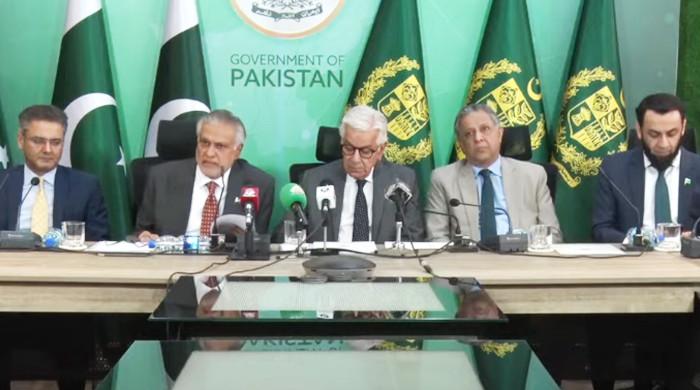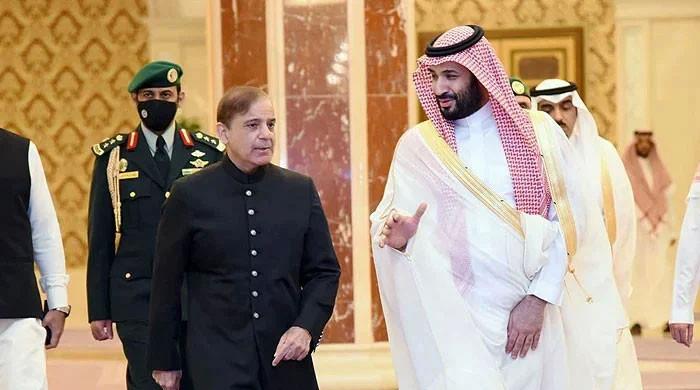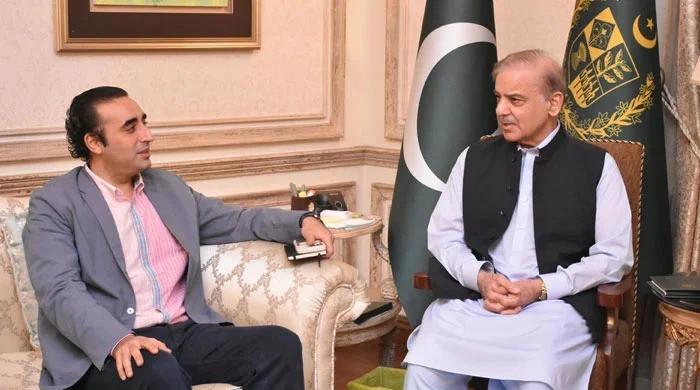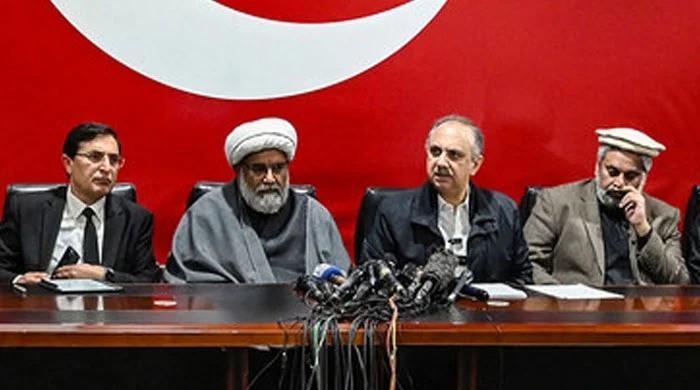What happens next to Altaf Hussain?
Altaf Hussain’s arrest is significant because previously many complaints have been made over the years and British authorities have failed to act
June 11, 2019

LONDON: The Muttahida Qaumi Movement (MQM) founder Altaf Hussain was arrested by Scotland Yard in an early morning raid on Tuesday, June 11, 2019 and remains at a police station awaiting further enquiries by the police.
After this correspondent broke the exclusive news on Geo News, New Scotland Yard confirmed in a statement that the MQM founder has been arrested on suspicion of Intentionally Encouraging or Assisting Offences, Contrary to Section 44 of the Serious Crime Act 2007. This allows people who assist another to commit an offence to be prosecuted regardless of whether the underlying substantive offence is actually committed or attempted.
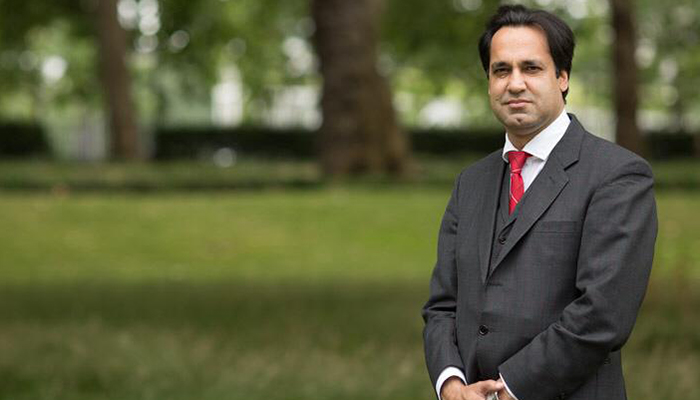
Geo News spoke to a leading criminal and terrorism law expert Barrister Zarif Khan on the next stages of how the law will take its course and what lies ahead for the MQM founder who controlled Karachi from London for over two decades with an iron fist.
Barrister Zarif Khan, who exclusively only defends, therefore, representing those who are accused, has dealt with numerous high-profile terrorism and hate speech cases in Britain and he’s arguably the only British Pakistani lawyer to have dealt with so many cases.
Zarif Khan said that Hussain’s arrest is significant because previously many complaints have been made over the years and the British authorities have failed to act.
He explained that the MQM founder will be kept and questioned at a police station for 24 hours before any charge under the Police and Criminal Evidence Act (PACE). “For most offences, the police may only detain a person for a maximum of 24 hours without charging. However, this can be extended with permission from an officer with the rank of superintendent or above (an extra 12 hours) or a magistrate (up to a maximum of 96 hours). You can be held without charge for up to 28 days if you’re arrested under the Terrorism Act,” he said.
He added: “Prior to being interviewed the police will give Altaf Hussain a chance to speak to his solicitor and disclosure will be provided to him as to why he has been arrested. It’s likely he will not make any comment.
“Once he has been interviewed the police will present a file to the CPS however in such a high profile case it is likely that the police will already have consulted lawyers to check the validity of the search warrant, collection of the type of evidence which will form the basis of any forthcoming charges”.
Once the police have interviewed Altaf Hussain they will present the file to the CPS for charge and the matter will then eventually proceed to a Crown Court, most likely to be the Central Criminal Court also known as the Old Bailey. The investigation can continue even though the individual has been charged.
“If charged it is likely that it will be hard for him to mount a defence because of the serious nature of the allegation under the British laws concerning hate speech. The reason being that the authorities in such a high profile case will have taken legal advice as well as gathered substantial evidence no doubt with speeches being translated by language experts and all nuances considered (bearing in mind the speeches are not in English) before taking this step,” he said.
Section 44 of the Serious Crime Act 2007 relates to intentionally encouraging or assisting an offence. It says:
(1) A person commits an offence if—
(a) he does an act capable of encouraging or assisting the commission of an offence; and
(b) he intends to encourage or assist its commission.
(2) But he is not to be taken to have intended to encourage or assist the commission of an offence merely because such encouragement or assistance was a foreseeable consequence of his act.”
Barrister Zarif Khan, of Dystone Chambers, explained that in the case of Altaf Hussain, it means that charges will be forthcoming for the reasons set out above.
The investigation, which is being led by officers from the Met's Counter Terrorism Command, is focused on a speech broadcast in August 2016 by an individual associated with the MQM movement in Pakistan as well as other speeches previously broadcast by the same person.
Barrister Zarif Khan said that the arrest means that the police believes it has enough material to get Altaf Hussain charged and it looks like that the police has sufficient grounds but it's for the CPS to make any final decision upon the exact charges which will be subject of any future indictment.





